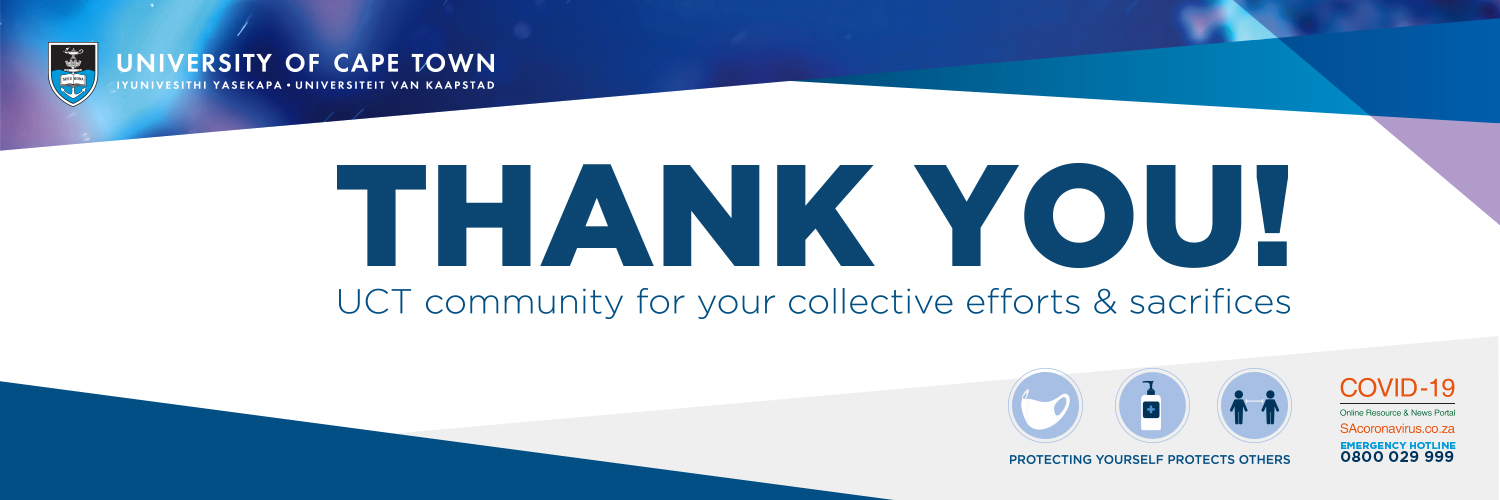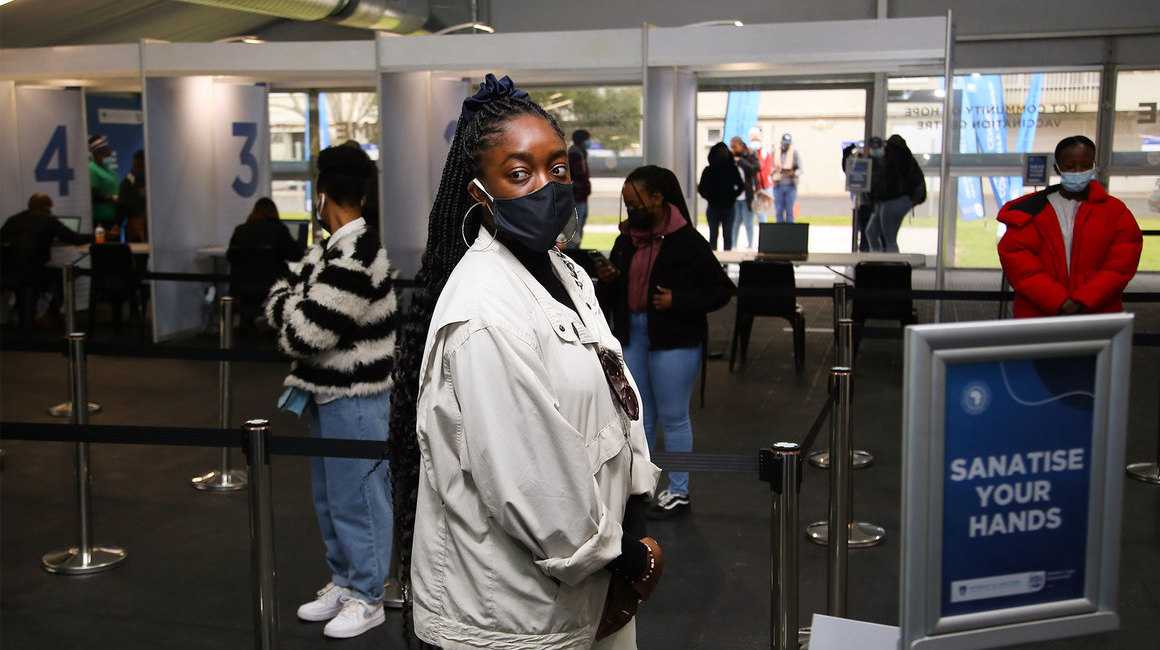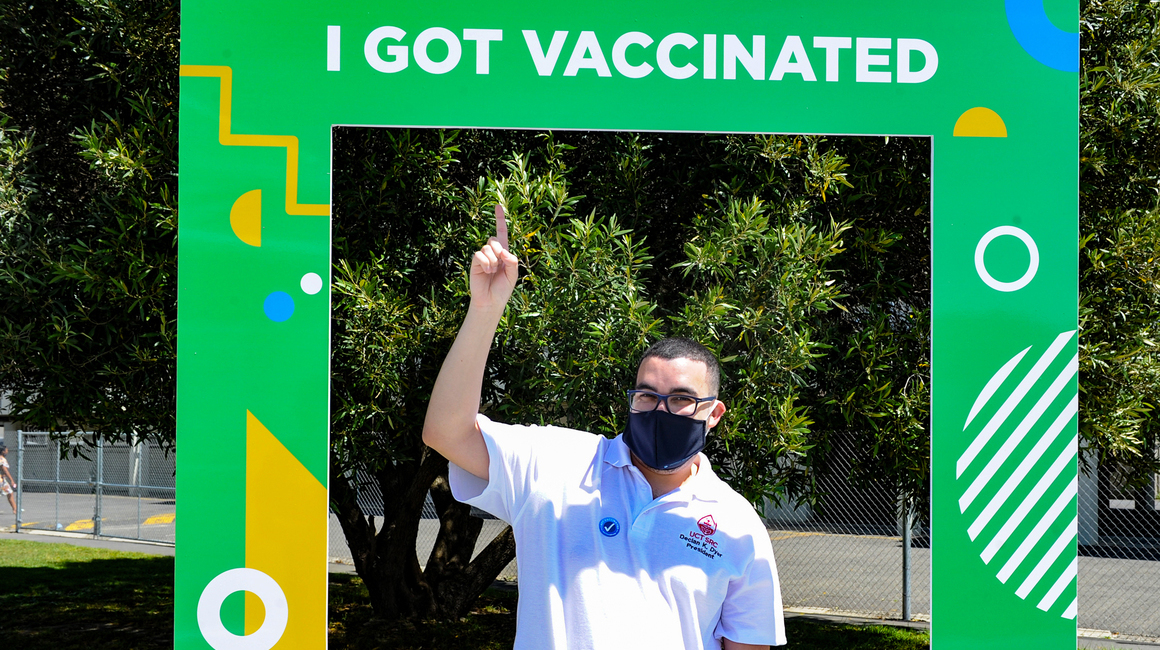UCT researcher to present novel COVID-19 study at global cardiology congress
27 August 2021 | Story Lisa Hadeed, Nobhongo Gxolo. Photo Supplied. Read time 5 min.
Professor Karen Sliwa of the multi‑disciplinary and interprofessional Cape Heart Institute (CHI), based in the University of Cape Town’s (UCT) Department of Medicine, is the principal investigator (PI) on the WHF [World Heart Federation ] COVID‑19 and Cardiovascular Disease Global Study. It has been accepted for presentation at the largest global cardiology congress, the prestigious Late Breaking Trial Session at the European Society of Cardiology congress this August. The full publication is expected later this year.
According to Professor Sliwa, less than 5% of all published reports on COVID‑19 come from the Global South, with less than 1% of these from the African continent. In fact, of all global research studies, less than 5% have a woman PI. Sliwa is at the helm of this new study which will have its findings presented at the congress on 27 August. Presentation of the data in this prestigious session takes on greater significance during Women’s Month, especially with Sliwa being the previous president of the WHF.
“This study has spawned a learning platform that can ultimately benefit communities, patients and practitioners.”
“In demanding circumstances facing a pandemic, we can easily become silos; but this study has spawned a learning platform that can ultimately benefit communities, patients and practitioners who might otherwise be excluded from global research and data,” said Professor Prabhakaran Dorairaj of the Public Health Foundation of India, one of the coordinating groups of the study along with the Centre for Chronic Disease Control.
Of the expected 5 000 patients who will be involved in the study, over 4 800 have been recruited so far from 38 sites in 24 countries – mainly from the Global South.
Additionally, an estimated 79% of the participants come from eight African countries, as well as from Latin America and South-east Asia. A cohort of this size, coming from this environmental context, is crucial in developing a better understanding of the impact of the COVID‑19 pandemic in low‑ to middle‑income countries – especially because most research has focused on the data available from developed economies.
Analysis of the first half of the patient cohort is proving vital in many ways, including in narrowing the knowledge gap about disease progression and the medical and social burden in particularly hard‑hit areas in order to strengthen clinical practice and decision‑making.
Sliwa commented: “The study is also unique through its inclusion of a younger population, with an average age of 56 years, while also capturing a detailed view of related medical facilities and infrastructure.”
Through this work, a better understanding of COVID‑19 and heart disease will be developed. The ongoing findings are expected to aid the management of COVID‑19 in resource‑poor set-ups, and guide health policy in less-resourced areas and beyond.
A wider lens
More than a year into the pandemic, the study aims to describe outcomes and identify risk factors associated with poor in‑hospital prognoses, with the aim of presenting a full analysis and results later this year.
Sliwa is Director of the CHI, and also a member of UCT’s Institute of Infectious Disease and Molecular Medicine. She explained: “We applied a wider lens to areas of the world that are often not reflected in much of the emanating research. We believe our findings will offer insights [into] and highlight the needs of communities in ways that are critical to holistic future preparedness and healthcare planning.”
“We believe our findings will … highlight the needs of communities in ways that are critical to holistic future preparedness and healthcare planning.”
Recruited patients have exhibited a range of underlying conditions including hypertension, diabetes, coronary artery disease, stroke, obesity, kidney disease, tuberculosis and HIV.
In‑hospital deaths were close to 14% while a further 4% succumbed to illness within a month after leaving hospital.
The leading causes of death were respiratory failure and complications of heart failure, including sudden cardiac death. In fact, a third of the deaths were sudden, and not due to lung disease or respiratory failure.
“Our data is rather special, as the population is younger and has different co‑morbidities [to those from previous studies in the Global North]. We also collected specific information on the healthcare set-up – which as you can imagine is different to [that of] the Western countries,” said Sliwa.
An almost accidental yet valuable outcome of the study is an emerging, interconnected group of experts spanning parts of the world that are often under‑served in health provision.
“Many of the hospitals had no cardiologists or respiratory physician specialists, as well as limited advanced care such as ventilators,” she added.
Healthcare workers and cardiologists involved at several sites have been able to strengthen life‑saving efforts at these sites, and build collective knowledge.
 This work is licensed under a Creative Commons Attribution-NoDerivatives 4.0 International License.
This work is licensed under a Creative Commons Attribution-NoDerivatives 4.0 International License.
Please view the republishing articles page for more information.
UCT’s response to COVID-19 in 2021
COVID-19 is a global pandemic that caused President Cyril Ramaphosa to declare a national disaster in South Africa on 15 March 2020 and to implement a national lockdown from 26 March 2020.
UCT is taking the threat of infection in our university community extremely seriously, and this page will be updated regularly with the latest COVID-19 information. Please note that the information on this page is subject to change depending on current lockdown regulations.

Global Citizen Asks: Are COVID-19 Vaccines Safe & Effective?
UCT’s Institute of Infectious Disease and Molecular Medicine (IDM) collaborated with Global Citizen, speaking to trusted experts to dispel vaccine misinformation.
If you have further questions about the COVID-19 vaccine check out the FAQ produced by the Desmond Tutu Health Foundation (DTHF). The DTHF has developed a dedicated chat function where you can ask your vaccine-related questions on the bottom right hand corner of the website.
IDM YouTube channel | IDM website
UCT Community of Hope Vaccination Centre
The University of Cape Town in partnership with the Western Cape Government (WCG) have reinforced our commitment to bringing hope to the residents of the Mother City with the launch of the world‑class Community of Hope Vaccination Centre that opened its doors on Monday, 30 August 2021.
The site is located on Main Road in Mowbray – in the Forest Hill Residence – and access is from Broad Street. The site is open every Monday to Friday from 08:00 to 15:00 and on Saturday from 09:00 to 13:00. Please allow time for attending to COVID-19 protocols and arrive as early as possible at the vaccination centre.
Frequently asked questions
News and views
Campus communications
2021
Media releases
Read more
UCT statements related to COVID-19 vaccinations
This is a space created for all formal bodies and structures within the university community to share their opinions on the need for a mandatory COVID-19 vaccine policy. Please note that some editorial judgement may be applied if the received statements go against any constitutional rights, and that no correspondence will be entered into, statements will be posted unedited and as received. Statements can be sent to opinions@uct.ac.za.
Commemorating a year of COVID-19
At midnight on 26 March 2020, South Africa went into the first nationwide hard lockdown. A year later, we remember those who have died and those who have been affected by COVID-19, as well as the pandemic’s effects across society and campus. We are especially grateful for the front-line health workers who have done so much for so many.
#UCTCOVIDPledge – social media elements
Customised Facebook frames and Instagram stickers are now available on those social media platforms. Watch the tutorial videos here to see how easily you can show your support for the #UCTCOVIDPledge.
In an email to the UCT community, Vice-Chancellor Professor Mamokgethi Phakeng said:
“COVID-19, caused by the virus SARS-CoV-2, is a rapidly changing epidemic. [...] Information [...] will be updated as and when new information becomes available.”
We are continuing to monitor the situation and we will be updating the UCT community regularly – as and when there are further updates. If you are concerned or need more information, students can contact the Student Wellness Service on 021 650 5620 or 021 650 1271 (after hours), while staff can contact 021 650 5685.












































































